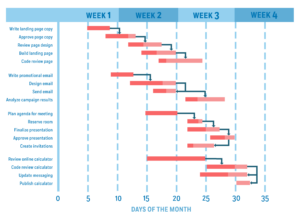Is that often they aren’t too familiar with their responsibilities on projects.
That’s a rather sweeping statement you’re thinking and you’d be right. In my experience, senior executives who have committed to funding the project often don’t have the inclination or the time to learn more about project management. And that’s leaving aside the fact that they are often too busy managing the business anyway to devote much time to your project.
These factors combined often means that the project manager is left without the direction expected from the sponsor.
I remember a conversation with a senior project manager at a UK government department. He was complaining that as soon as parliament closed down for the summer the sponsor jetted off to his villa in Tuscany for 4 months. Not only that, but he refused to leave any contact phone number or contact details with the project manager. So, when issues came up during this period, the project manager was either left waiting for several months, or was forced into taking a decision beyond his authority.
Lack of sponsorship was identified by the Standish Group in their Chaos Report as one of the most important reasons why projects fail. Of course, there are always some projects with active, committed executive sponsors who know that their role is to direct the project and to take the big decisions whilst delegating day to day to the project manager. These projects stand a much higher chance of being successful compared to those with non-committal or absent sponsors.
So what can you do as a project manager to try to avoid this scenario? Well, the truth is, there is no silver bullet.
You could identify the sponsor’s potential lack of involvement as a risk early on and use this as an opportunity to discuss with the sponsor the expected level of involvement. Crucially, it will be about agreeing when key decisions need to be taken by the sponsor and trying to ensure their availability at these times.
You could try to educate them about their responsibilities on the project, but don’t expect that they will want to sit through a training course however.
More fundamentally, if you find your sponsor going AWOL shortly after committing the project budget, then this is a sure sign that your project is on the road to failure.
 Sections of this topic
Sections of this topic













